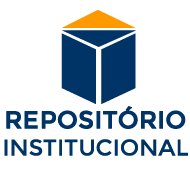Please use this identifier to cite or link to this item:
http://aprender.posse.ueg.br:8081/jspui/handle/123456789/189| Title: | OUTORGA DE ÁGUA |
| Authors: | Campos, Bruno Pereira Barbosa, Diogo Vieira |
| Keywords: | Gestão Água Agricultura Recurso |
| Issue Date: | Nov-2017 |
| Publisher: | Universidade Estadual de Goiás (UEG) |
| Abstract: | A necessidade do uso d’água na agricultura vem a cada ano aumentando consideravelmente. O que pode gerar um uso incorreto dos recursos hídricos, principalmente em uma agricultura de baixa tecnologia. A outorga de uso da água e um instrumento da Política Nacional de Recursos Hídricos, criada pela Lei 9.433 de 1997, que tem como intuito propiciar uma gestão correta e eficaz de um bem preciosíssimo e de extremo valor econômico, social e cultural para toda vida no planeta. Essa busca pelo gerenciamento eficiente é de fundamental importância,pois esse bem indispensável para manutenção da vida se encontra em quantidade extremamente pequena e em distribuição desigual entre as regiões, reforçando sua característica de escassez em alguns locais. O Brasil esta em posição teoricamente privilegiada, com 12% do potencial hídrico mundial em estado puro para uso, seja para agricultura, pecuária ou consumo humano. Um dado que em aspectos práticos não é usado com consciência pela maioria.Com o processo de desenvolvimento essa realidade tende a mudar, pois adoção de técnicas de manejo apropriada como também uma maior busca por conscientização ambiental, são medidas que se fazem cada vez mais necessárias. Diante da necessidade de uma produção agropecuáriacada vez mais crescente para satisfazer a demanda global por alimento, é precisocada vez mais a utilização de processos e técnicas/mecanismos eficientes que melhor se enquadrem no quesito uso e manipulação consciente dos recursos hídricos. O objetivo do presente trabalho é expor um dos mecanismos de gestão de recursos hídricos a outorga de água.________________________________________________The need for water use in agriculture is increasing every year. This can lead to an incorrect use of water resources, especially in low-tech agriculture. The granting of water use and an instrument of the National Water Resources Policy, created by Law 9.433 of 1997, which aims to provide a correct and effective management of a most precious asset and of extreme economic, social and cultural value for all life in the planet. This quest for efficient management is of fundamental importance, since this indispensable asset for the maintenance of life is found in an extremely small quantity and in uneven distribution between regions, reinforcing its scarcity characteristic in some places. Brazil is in a theoretically privileged position, with 12% of the world's pure water potential for use, whether for agriculture, livestock or human consumption. A fact that in practical aspects is not used consciously by the majority. With the development process this reality tends to change, because adoption of appropriate management techniques as well as a greater search for environmental awareness, are measures that are becoming more and more necessary. Faced with the need for a growing agricultural production to satisfy the global demand for food, it is necessary to use efficient processes and techniques / mechanisms that best fit the question of the use and conscious manipulation of water resources. The objective of the present work is to expose one of the mechanisms of water resources management to the granting of water. |
| URI: | http://187.6.250.232:8081/jspui/handle/123456789/189 |
| Appears in Collections: | Monografias |
Files in This Item:
| File | Description | Size | Format | |
|---|---|---|---|---|
| MONOGRAFIA_BRUNO-CD.pdf | 1,61 MB | Adobe PDF | View/Open |
Items in DSpace are protected by copyright, with all rights reserved, unless otherwise indicated.
